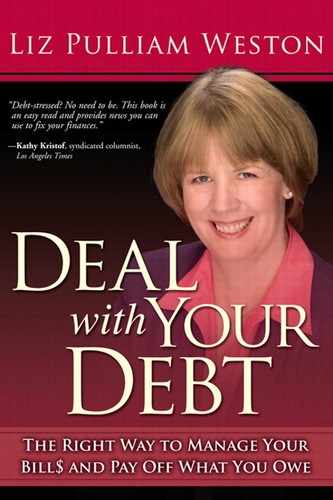Three More Loans to Beware
Not all questionable loans come with triple-digit interest rates. Some have APRs that seem almost reasonable. But there may still be traps aplenty:
125 or high-loan-to-value mortgages. Lenders who specialize in such loans promise to give you a mortgage or home equity loan for more than your house is worth (typically up to 125% of the home's value, which is where the loan gets its name). These loans often come with steep upfront fees (10% of the loan amount isn't uncommon) and high interest rates. Not all of the interest is deductible, since you can't write off interest on loans worth more than your house. And you'll really be in a jam if you have to sell your house for less than the mortgage; you'll still owe the difference between the sale price and your loan balance.
These loans are bad deals all around. They're costly and dangerous and use up the cushion of equity you should keep in your home.
Debt-consolidation loans. Consolidate your high-rate credit card debt into one convenient loan with a low monthly payment—and you may end up paying through the nose.
Some debt-consolidation loans do exactly what they promise: lower the total cost of your debt. But many lower your payments only because they stretch out your loan repayment term for years and years. You may wind up paying a higher interest rate on your debt, plus numerous fees that increase your costs.
“I recently was stupid and took out a personal loan at 22% to pay off my credit cards,” said Charlene from Salem, New Hampshire. “Now I have a loan for 84 months that seems to be adding on more interest than I'm paying. It's hard to afford more than the minimum balance, and because I was three days late with a payment, they added on $500 in fees, including a late-payment fee, an over-the-limit fee, and finance charges. Now I just feel buried. I dug myself into a deeper hole and can't ever imagine getting myself out of it.”
There's also a lot of fraud in this area, with scam artists promising loans in return for big upfront fees or commissions.
If you do consider a debt-consolidation loan, deal only with lenders you know, such as a local credit union or well-known bank. Compare the interest rate and terms to what you're paying now on the debt you hope to pay off. You shouldn't have to pay hefty upfront fees or commissions to get the loan, and you should be able to pay off the debt in a reasonable length of time.
Margin loans. Brokerages typically allow you to borrow money using your securities (stocks, bonds, mutual funds, and so on) as collateral. The interest rate you pay is relatively low—usually one to three percentage points over the prime rate—which is why some people turn to margin loans as a source of emergency cash or to fund other investments.
The big risk is that your loan can be “called” with little warning. If the value of your securities drops, the brokerage can ask you to deposit more cash in your account to bring the balance up to its minimum standards. If you don't respond quickly enough, the brokerage can seize your investments and sell them.
Inexperienced investors should steer clear of margin loans until they have a good feel for the possible swings the market can inflict on a portfolio. Even then, they should limit their borrowing to less than what a brokerage allows and have a ready source of cash to tap if their loans should be called.
